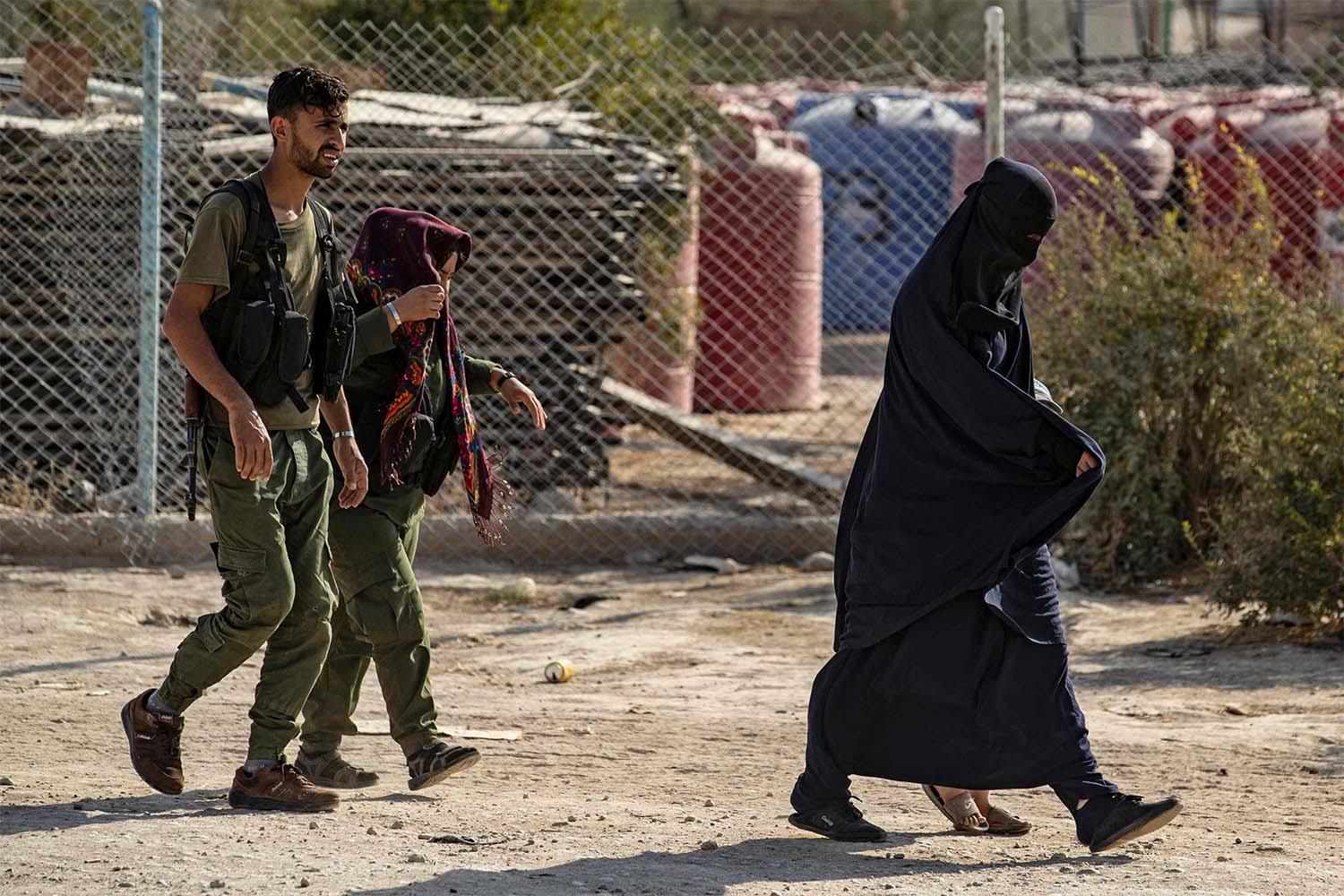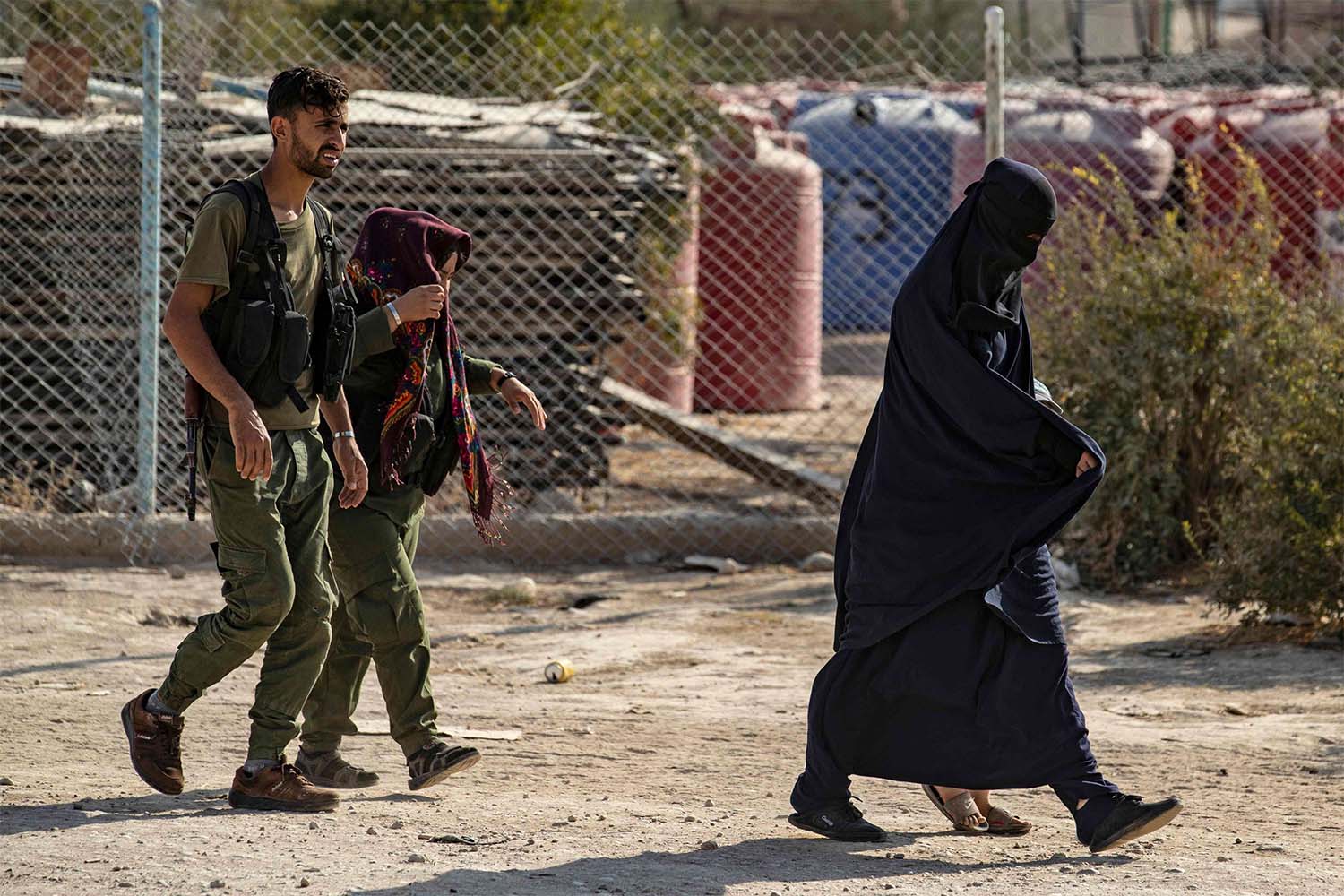Handing ISIS fighters over to Turkey could terribly backfire
Turkish President Recep Tayyip Erdogan may have scored one of his biggest political coups by convincing US President Donald Trump to allow the Turkish Army to take on, and likely defeat, Washington’s erstwhile allies, the Syrian Defence Forces.
Trump’s decision to move all 2,000 US forces out of north-eastern Syria while declaring Washington wouldn’t stand in the way of Ankara’s long-sought military campaign east of the Euphrates was only topped by one incredible coda: “Turkey will now be responsible for all ISIS (Islamic State) fighters in the area captured over the past two years,” a White House statement said.
Approximately 12,000 ISIS prisoners, 2,000 of whom are foreigners, are detained by Kurdish militias in Qamishli and elsewhere. More than 90% of the 68,000 people in al-Hol camp are women and children taken from ISIS-controlled territory in and around Baghouz last spring and reports suggest they remain radicalised and ardent ISIS supporters.
The prospect of Turkey getting its hands on the thousands of ISIS fighters and their supporters detained by the Syrian Defence Forces (SDF) seems extremely unlikely for a host of reasons but especially in light of the 5-day cessation of Turkey’s operation, agreed by Ankara and US Vice-President Mike Pence on October 17 to allow Kurdish forces to withdraw from the border region.
Kurdish fighters assigned to guarding ISIS prisoners have left their posts to meet the Turkish advance at the border. More than 800 ISIS affiliates escaped October 13 from a camp in Ain Issa. For the Kurds, guarding ISIS prisoners is a secondary priority to fending off the Turkish Army, some Kurdish officials said. On top of that, some threatened to let the jihadist prisoners go free as payback for Washington’s betrayal.
The US military has declared it has no intention to intervene, in part because it doesn’t plan to have any forces in the area. It’s been reported that US personnel whisked away remaining members of the so-called British “Beatles” ISIS jihadists to Iraq.
So it seems that the two elements whose leading purpose in north-eastern Syria is to guard the jihadists — the Americans and the Kurdish militias — have left or are soon to leave their posts.
One major issue facing any potential handover is how Turkish troops and the Kurdish militias — sworn enemies for decades — may enact a handover of the ISIS prisoners since the latter are disinclined, to say the least, to cooperate with Turkey in any respect. With battalions of Turkish soldiers and tanks at the doorstep, are SDF fighters likely to welcome in the Turks and hand over the prison keys or are they likely to attempt ambushing the Turkish soldiers?
If the latter is a possibility, are Turkey’s military leaders looking to deploy warplanes and air strikes on Kurdish militias and their ISIS captives to protect their own soldiers?
There is so much potential for calamity that no one route seems in the least bit plausible.
It’s worth recalling that the last time Turkey entered Kurdish-controlled territory in northern Syria, it blitzed and destroyed much of Afrin, leaving Syrian rebel groups to pillage and plunder.
Were the Kurds to abandon their prisoners, which seems most likely, ISIS militants and their until-now separated families would have a tremendous opportunity to regather and, as the Turkish military and Kurdish fighters meet on the battlefield, sneak south into the Syrian desert where they could reorganise.
However, if the Turkish troops were to get their hands on the ISIS prisoners before they make a dash, what then? Such a scenario would lead to a new set of problems. Turkey hasn’t said what it plans to do with the prisoners, where they will end up or how it plans to house and rehabilitate the extremists.
Writing in the Washington Post, Fahrettin Altun, the director of communications for the Turkish government, claimed: “Our country also helped the Free Syrian Army keep thousands of Islamic State militants behind bars for years.” That would suggest that it would be the Syrian rebels Turkey sponsors who would take responsibility for the jihadists on territory it plans to take from the Kurds in the current operation. Such a plan is laden with pitfalls — we’ve seen this movie before.
ISIS sleeper cells in and around Raqqa, which are already striking out, and elsewhere would be certain to mount raids and suicide attacks on the rebels to free their jihadist friends. Before long they’d be successful and ISIS would be back in action. The world would then find itself facing the same problem as in 2015. The only difference this time is that, having been betrayed by Washington, the SDF and other affiliated Kurdish militias would want to play no part in hunting down the jihadists a second time.
The entire Syrian quagmire has read like a recurring bad dream. It seems that when things can get no worse, something else comes along — this time Trump — and sees the conflict’s good guys get thrown out with the trash. In the Shakespearean tragedy the war has devolved into, abandoning the Kurds at this moment is an error that tops them all.
Stephen Starr is an Irish journalist who lived in Syria from 2007 to 2012. He is the author of Revolt in Syria: Eye-Witness to the Uprising (Oxford University Press: 2012).
Copyright ©2019 The Arab Weekly







